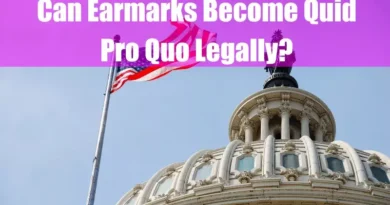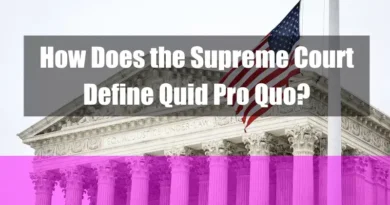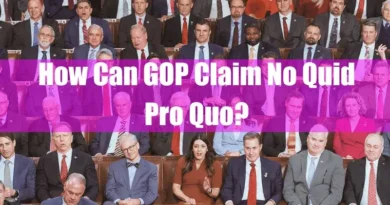Political Back-Scratching Meaning and Definition: Analysis
Takeaways
| Key Points |
|---|
| Political back-scratching refers to the mutual exchange of favors between individuals or groups, particularly within politics. |
| This practice involves helping someone in return for assistance in the future, such as legislators supporting each other’s proposals to ensure their own initiatives pass. |
| This behavior is closely tied to concepts like “logrolling,” where lawmakers trade votes to achieve mutual benefits, even if the specific legislation doesn’t directly align with their personal views or broader public interest. |
| While this tactic can lead to necessary compromises, it often draws criticism for promoting self-serving agreements rather than prioritizing the public good. |
Understanding Political Back-Scratching
Political back-scratching is a term commonly used to describe the informal exchange of favors among politicians and government officials. It refers to situations where individuals in positions of power use their influence to help each other achieve personal or political goals. This practice often includes giving or receiving “favors of office,” such as promoting a particular policy or passing legislation that benefits another politician’s constituents in exchange for similar support in return.
In U.S. politics, back-scratching has various forms, including logrolling, pork-barrel spending, and political patronage. Though sometimes viewed as a natural part of political maneuvering, it can also lead to corruption, wasteful spending, and a distortion of democratic principles.

Key Terms Related to Political Back-Scratching
- Back Scratching: At its core, this concept refers to mutual assistance between politicians. Each party offers support to the other with the expectation of reciprocal favors. This quid pro quo agreement often benefits both parties, either politically or financially, but may not always align with broader public interests.
- Logrolling: This is a specific type of political back-scratching in which legislators trade votes to ensure that both parties’ preferred policies pass. For example, one politician may agree to support a colleague’s proposed infrastructure project if the colleague agrees to vote for their education initiative. This practice has historical roots in U.S. politics, most notably in the ‘Compromise of 1790,’ where Alexander Hamilton and James Madison, brokered by Thomas Jefferson, exchanged political favors to establish the national capital on the Potomac River and secure federal assumption of state war debts.
- Pork Barrel Politics: This term refers to politicians securing government funds for localized projects that primarily benefit their constituents but may not serve the national interest. Often associated with back-scratching, pork-barrel spending can lead to inflated budgets and prioritization of personal or regional interests over broader public needs. Examples include federally funded bridges or community centers that cater to small groups while using taxpayer dollars nationwide.
- Patronage and Spoils of Office: Political patronage refers to the practice of politicians rewarding loyal supporters with government jobs or contracts. The “spoils of office” is a related concept, where elected officials distribute government resources to reward political allies. These practices often stem from political back-scratching and raise concerns about corruption and favoritism.
Mechanisms of Political Back-Scratching
- Use of Political Influence: Politicians often use their clout to advance the interests of others within their network. By leveraging political influence, they can shape legislation, secure government contracts, or promote specific projects in return for future support. This “political pressure” is frequently seen in campaign donations or lobbying efforts.
- Political Horse-Trading and Wheeling-and-Dealing: Politicians engage in complex negotiations, exchanging support for policies in a practice known as horse-trading. This behind-the-scenes maneuvering is sometimes necessary to pass significant legislation, as politicians balance their needs with their colleagues.
- Public Till and Public Crib: These terms refer to government-controlled public funds or resources. Political back-scratching sometimes results in the misuse of these resources, as officials direct taxpayer dollars towards projects that benefit a select few, often leading to accusations of corruption.
- Political Patronage and Cronyism: In systems rife with patronage, politicians allocate government resources, jobs, or perks to supporters in exchange for loyalty. Cronyism, where friends and associates of politicians are given special favors or positions, further exemplifies political back-scratching.

Ethical Concerns and Corruption
- Political Corruption: One of the significant downsides of political back-scratching is the potential for corruption. When politicians prioritize personal or political gain over public interest, it undermines trust in the system. Practices like influence peddling, where individuals use their position of power to secure financial benefits, are common examples of how back-scratching can devolve into outright bribery.
- Political Nepotism and Manipulation: In addition to cronyism, nepotism is another common form of political back-scratching, where politicians favor family members for government positions or contracts. This kind of favoritism distorts meritocratic systems and often results in less qualified individuals being given critical roles.
Consequences of Political Back-Scratching
- Wasteful Spending: Pork-barrel politics and patronage often lead to inefficient use of taxpayer funds. When political favors take precedence over actual needs, it results in the misallocation of resources, inflating budgets and leading to projects with little benefit to the wider public.
- Erosion of Public Trust: Back-scratching diminishes the public’s trust in government institutions. As citizens witness politicians engage in insider deals, it reinforces a perception that the system favors the powerful, fostering political apathy and cynicism.
- Political Leverage and Sway: Political back-scratching also allows those with significant power to entrench their positions further. Politicians who engage in this practice build networks of favors that give them leverage, increasing their political clout at the expense of those outside the circle of influence.

Case Study in Political Back-Scratching
The “Bridge to Nowhere”
The “Bridge to Nowhere” is one of the most notorious examples of pork-barrel spending in U.S. politics. The project proposed a bridge in Alaska that gained widespread national attention, becoming a symbol of government wastefulness due to its limited utility. The bridge was intended to connect the small town of Ketchikan (population around 8,900) to Gravina Island (population 50), home to the town’s airport.
In 2005, Congress passed an omnibus bill that earmarked $442 million for two Alaska bridges, with the Gravina Island Bridge receiving $223 million in federal funds. This large expenditure, meant to serve a small population, drew criticism for its high cost relative to the local benefits, leading it to be portrayed as a prime example of fiscal irresponsibility.
United States of America. (n.d.). H. R. 3. https://s3.amazonaws.com/propublica/assets/docs/safetea_lu_2005.pdf
Reforms and Attempts to Curb Political Back-Scratching
Over the years, various reforms have been implemented to address political back-scratching, particularly in the form of pork-barrel spending and patronage. For example, a 2011 Republican-led House initiative imposed a moratorium on earmarks, which are specific budget allocations often associated with pork-barrel politics. Although the moratorium initially reduced earmark spending, it had mixed long-term success, as earmarks returned in 2021.
Congress has since debated the role of earmarks, with some arguing they are essential for local projects, while others see them as wasteful and prone to misuse.
Political Back-scratching and Quid Pro Quo
Political back-scratching is closely related to the concept of quid pro quo in politics, as both involve the exchange of favors for mutual benefit. In political back-scratching, politicians and other key players offer something of value—such as political support, favorable legislation, or government contracts—in return for something beneficial to them, such as campaign donations or political endorsements.
This ‘something for something’ dynamic reflects the quid pro quo framework, where a reciprocal exchange is expected. While such exchanges are common in politics and not always illegal, they can blur the line between ethical political negotiation and corruption, especially when personal gain or private interests take precedence over public welfare.

For instance, a lobbyist may donate to a politician’s campaign with the understanding that the politician will advocate for policies that align with the donor’s interests. While not all back-scratching deals are illegal, they raise significant ethical concerns, particularly when they prioritize private interests over public welfare. This transactional nature can be seen as political influence peddling, where those with financial or political clout gain undue influence over legislative or governmental decisions.
Although such exchanges are often presented as routine parts of political negotiation, they can be perceived as corrupt, especially when there is a lack of transparency or when the public perceives that officials are acting for personal gain rather than in the public interest.
Conclusion
Political back-scratching is a deeply ingrained part of political life, rooted in the exchange of favors for mutual benefit. While it can sometimes be a practical tool for compromise and political maneuvering, it also carries significant ethical risks. Corruption, inefficiency, and favoritism may accompany this practice, leading to a distorted representation of public interest and eroded trust in democratic institutions.
FAQ
What is the “Spoils System”?
The spoils system, also known as patronage, is a practice where a political party, after winning an election, rewards its supporters, friends, and relatives by appointing them to government positions. This system emphasizes loyalty over merit, often leading to inefficiency and corruption within public service.
Can you explain “Clientelism”?
Clientelism refers to a political system where goods or services are exchanged for political support. It involves a hierarchical relationship between patrons (politicians) and clients (voters), where the patron provides material benefits in return for electoral support. This reciprocal arrangement can undermine democratic processes by prioritizing personal loyalty over public interest.
What does “Cronyism” mean?
Cronyism is the practice of favoring close friends or associates by appointing them to positions of authority, regardless of their qualifications. This often leads to unqualified individuals holding significant power, resulting in inefficiency and potential corruption within governmental or organizational structures.
Define “Nepotism” in a political context.
Nepotism involves granting favors or jobs to one’s own family members, especially to someone in public office. This preferential treatment can lead to unqualified individuals occupying important positions, undermining merit-based systems and public trust in institutions.
What is “Regulatory Capture”?
Regulatory capture occurs when a regulatory agency, established to act in the public’s interest, becomes dominated by the industries it is charged with regulating. This leads to decisions that benefit the industry at the public’s expense, often resulting from revolving doors between industry and regulatory bodies.
Explain the term “Pork Barrel Politics.”
Pork barrel politics refers to the allocation of government spending for localized projects secured primarily to bring money to a representative’s district. These projects are often not essential but are used to gain favor with local voters, leading to inefficient use of public funds.
What does “Logrolling” mean in legislative processes?
Logrolling is a practice where legislators exchange support for each other’s proposed bills or amendments. By agreeing to vote for one another’s initiatives, they ensure the passage of measures that might not succeed independently, which can lead to the enactment of laws serving special interests rather than the public good.
Define “Graft” in the context of politics.
Graft is the unscrupulous use of a politician’s authority for personal gain. It involves the acquisition of money or advantages through dishonest or fraudulent means, such as bribery or insider trading, undermining the integrity of public office.
What is “Influence Peddling”?
Influence peddling occurs when individuals use their connections to government officials to secure favors or preferential treatment for others, typically in exchange for payment. This practice erodes public trust and can lead to unequal access to services or opportunities.
Explain the concept of “Pay-to-Play” in politics.
Pay-to-play is a practice where businesses or individuals make political contributions or payments to gain lucrative government contracts or favorable legislation. This system creates an uneven playing field, favoring those with financial resources and undermining democratic fairness.
What does “Revolving Door” mean in a political setting?
The revolving door refers to the movement of individuals between roles as legislators or regulators and positions in industries affected by the legislation or regulation. This can lead to conflicts of interest, as former public officials may use their insider knowledge for private gain, compromising public policy.
Define “Political Patronage.”
Political patronage is the dispensation of favors or rewards, such as public office positions, jobs, contracts, or other valued benefits, by a patron (usually a politician) to a client (supporter). This system often prioritizes loyalty over competence, affecting the efficiency and fairness of public services.
What is “Vote Buying”?
Vote buying involves offering material goods or monetary incentives to voters in exchange for their votes. This practice undermines the democratic process by influencing electoral outcomes through bribery rather than genuine political support.
Explain “Political Machine” in the context of governance.
A political machine is an organized group that controls a political party in a city or region, offering services or favors in exchange for political and financial support. These machines often rely on patronage and clientelism to maintain power, sometimes leading to corruption and manipulation of electoral processes.
What does “Rent-Seeking” mean in political economics?
Rent-seeking is the effort to increase one’s share of existing wealth without creating new wealth. In politics, it refers to individuals or groups lobbying government officials for economic advantages, such as subsidies or exclusive contracts, leading to inefficient allocation of resources and potential corruption.









